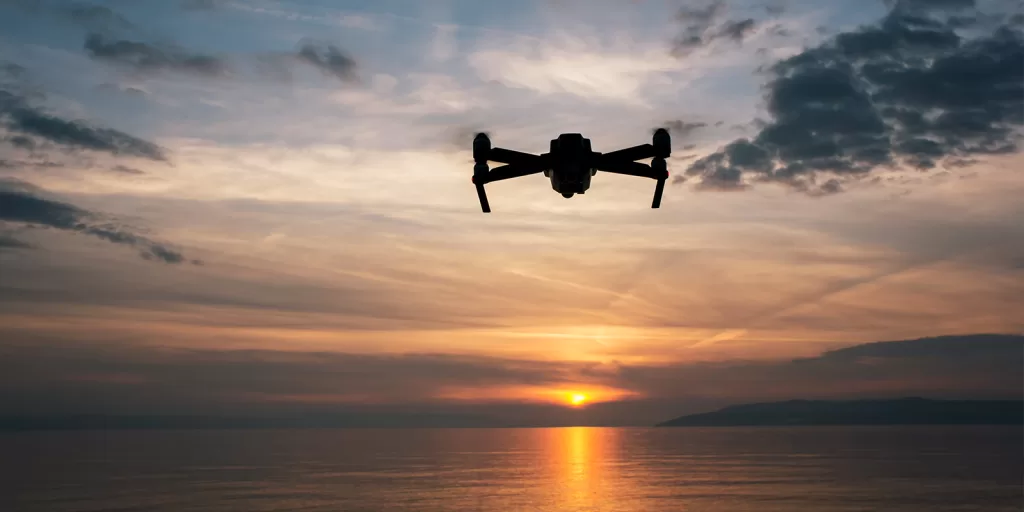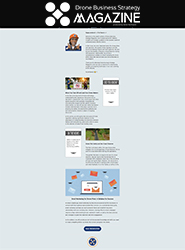
The recent introduction of the Countering CCP Drones Act has sparked concerns among drone enthusiasts and professionals who rely on DJI drones. As the leading Chinese drone manufacturer faces potential bans in the US, it’s crucial for drone pilots to understand how to adapt to this new regulatory environment. The potential ban could significantly impact operations, but with the right strategies, pilots can continue to fly and DJI can work to protect its brand in the US.
Here’s a quick guide on what drone pilots can do and what DJI might do to navigate this challenging situation.
Understanding the Countering CCP Drones Act
(H.R.2864 — 118th Congress, 2023-2024)
This bill requires the inclusion of telecommunications and video surveillance equipment or services produced or provided by Shenzhen Da-Jiang Innovations Sciences and Technologies Company Limited (commonly known as DJI Technologies) on a list of communications equipment or services determined by the Federal Communications Commission (FCC) to pose an unacceptable risk to U.S. national security. Under current law, federal funding available through specified FCC programs is prohibited from being used to purchase or maintain any equipment or services listed by the FCC as a national security risk. This means that DJI products, if officially listed, would not only be restricted from federal use but could also influence broader market access and usage across various sectors.
Synopsis: Drone Advocacy Alliance and Countering CCP Drones Act
To gain further insight pertaining to the Countering CCP Drones Act, a recent video was posted that features a discussion on the Drone Advocacy Alliance (DAA) and its efforts in advocating for the drone industry. Greg and Haye, representing the Pilot Institute and Drone XL respectively, introduce the Pixel Drone Show, a podcast highlighting various professionals in the UAS (Unmanned Aircraft Systems) space. They welcome Vic Moss, the director of DAA, to discuss the recent focus on drone bans and related legislation.
Vic explains the origins of DAA and its mission to support drone service providers in the United States. The conversation delves into the proposed Countering CCP Drones Act, which aims to restrict FCC licenses for Chinese-made drones, particularly those by DJI. The discussion also touches on alternative proposals, such as increasing tariffs on Chinese drones.
The participants express concerns about the potential impact on the drone industry and highlight issues with proposed legislation. They emphasize the importance of developing cybersecurity protocols and standardized security requirements for drones, rather than blanket bans based on country of origin. Additionally, they stress the need for clarity on restricted airspace to ensure responsible drone operations.
Overall, the discussion underscores the complexities surrounding drone legislation and the necessity for balanced approaches that prioritize industry growth while addressing security concerns.
What Drone Pilots Can Do
1. Transition to Alternative Brands
- Research and Invest: Start exploring other drone brands that meet US regulations. Companies like Autel Robotics, Skydio, and Parrot offer excellent alternatives. Investing time in research will help you choose the best drone to suit your needs.
- Familiarization: Spend time learning about the new drones, their features, and capabilities to ensure a smooth transition from DJI products.
2. Maintenance and Repairs
- Stock Up on Parts: Purchase necessary spare parts and accessories for your current DJI drones while they are still available. This will help maintain your drones in good condition.
- Independent Repair Shops: Identify and connect with independent repair shops capable of servicing DJI drones. This can extend the operational life of your current equipment.
3. Software and Data Management
- Backup Data: Securely back up all your flight data, media, and software to prevent data loss during the transition period.
- Explore New Software: Look for flight planning and control software compatible with non-DJI drones to maintain your workflow and operational efficiency.
4. Compliance and Training
- Stay Updated: Keep yourself informed about new regulations and guidelines from the FAA and other authorities. This knowledge will help you remain compliant.
- Training: Consider enrolling in training programs for the new drone systems. Proper training will help you get the most out of your new equipment and ensure safety and compliance.
What DJI Could Do to Protect Its Brand in the US
1. Compliance and Transparency
- Engage with Regulators: DJI should actively engage with US regulators to address security concerns and demonstrate compliance with American laws and standards.
- Transparency Initiatives: Implement transparency measures, such as third-party audits, to reassure both customers and regulators about the security and integrity of DJI products.
2. Local Manufacturing
- Establish US-Based Manufacturing: Setting up manufacturing facilities in the US could help mitigate concerns about Chinese government influence and create local jobs, potentially gaining favor with regulators and consumers.
3. Partnerships and Alliances
- Form Strategic Partnerships: Partnering with US-based companies and organizations could strengthen DJI’s local presence and show a commitment to the US market.
- Advocacy and Lobbying: Engaging in advocacy and lobbying efforts can help educate policymakers on the benefits of DJI products and the measures taken to address security concerns.
4. Product Diversification
- Expand Product Line: DJI might consider diversifying its product line to include models specifically designed to meet US security requirements, possibly marketed under a different brand name.
- Focus on Consumer and Enterprise Segments: Developing and marketing products with enhanced data security and privacy features tailored for both consumer and enterprise segments could help maintain market presence.
5. Customer Support and Service
- Enhanced Customer Support: Strengthening customer support in the US will ensure continued service and support for existing DJI customers.
- Extended Warranties and Guarantees: Offering extended warranties and guarantees can provide peace of mind to customers concerned about potential bans.
Conclusion: The Takeaway
Written by: Tony Marino, MBA – FAA Certified Part 107 Commercial Drone Pilot and Chief Business Strategist at Aerial Northwest
Disclaimer: The information provided in this blog post is for general informational purposes only and should not be construed as legal advice.
Resources

DRONE BUSINESS STRATEGY MAGAZINE
A free digital publication made exclusively for all small business drone pilots to them help start-up, become profitable while sustaining a competitive advantage within the drone service industry sector they opt to serve.
“If you love to fly, we’d love to have you come aboard!”
We share your information with no one. Our Privacy Policy.









Leave a Reply
Your email is always safe with us.